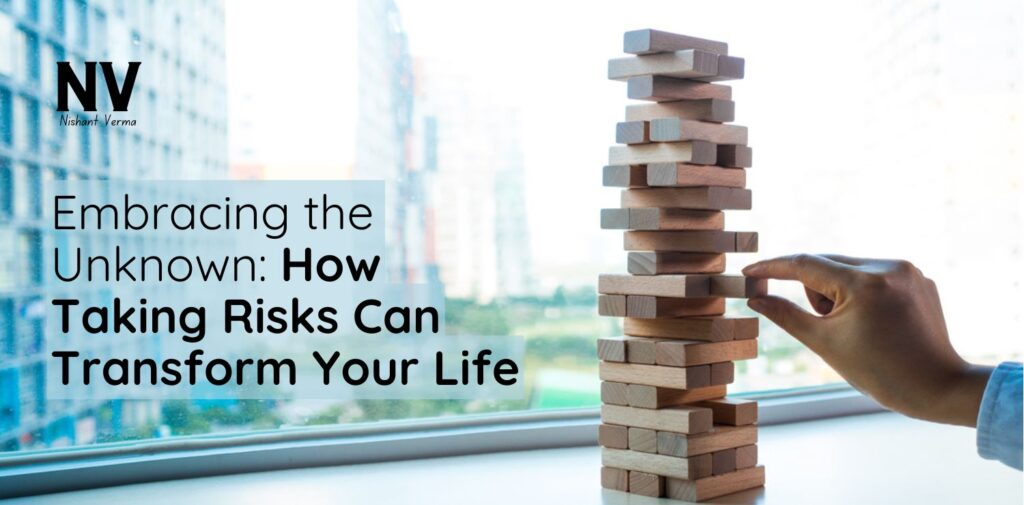In the fast-paced world we live in, embracing the unknown and taking risks can feel daunting. Yet, history and modern success stories show that it is often these very risks that lead to the most transformative experiences and achievements. From renowned entrepreneurs to groundbreaking artists, many of today’s leaders have made their mark by stepping out of their comfort zones. This article delves into how taking risks can not only shape your future but also enhance your personal and professional growth.
Understanding Risk-Taking
At its core, risk-taking involves stepping into the unknown and facing potential challenges head-on. It means making decisions where the outcomes are uncertain and where failure is a possibility. However, it is important to distinguish between reckless behavior and calculated risks. Calculated risks are those where potential rewards outweigh the possible downsides, and they are approached with preparation and foresight.

The Psychology of Fear
Fear is a natural reaction when faced with uncertainty. It triggers our fight-or-flight response and often manifests as anxiety about potential failure. Many young adults hesitate to take risks due to a fear of failure, judgment, or the unknown. This fear can paralyze us, preventing us from seizing opportunities that could lead to significant personal and professional growth.
Understanding the psychology behind fear can help in overcoming it. Fear is often magnified by our minds, creating worst-case scenarios that may never come to pass. By recognizing this, we can begin to challenge these fears and focus on the positive outcomes of taking risks.
Success Stories: The Power of Risk-Taking
- Elon Musk: A quintessential example of risk-taking is Elon Musk, the founder of SpaceX and Tesla. Musk’s ventures into space exploration and electric vehicles were met with skepticism and significant financial risks. Yet, his willingness to invest his own money and bet on unproven technologies has revolutionized multiple industries. His story highlights how calculated risks, even in the face of great uncertainty, can lead to groundbreaking achievements.
- J.K. Rowling: Before becoming one of the world’s best-selling authors, J.K. Rowling faced numerous rejections from publishers for her Harry Potter manuscript. Her willingness to persist and take the risk of pursuing her dreams despite repeated setbacks led to one of the most successful literary franchises of all time. Rowling’s journey exemplifies how perseverance and risk-taking can yield extraordinary results.
- Sarah Blakely: The founder of Spanx, Sarah Blakely, started her company with just $5,000 and a revolutionary idea for women’s shapewear. She faced numerous obstacles and rejections but took the risk to bring her vision to life. Blakely’s success story underscores the potential of taking risks to create something innovative and impactful.

Benefits of Taking Risks
- Personal Growth: Stepping out of your comfort zone and facing uncertainty fosters personal growth. It challenges you to develop new skills, adapt to new situations, and build resilience. Each risk you take helps you learn more about yourself and your capabilities, leading to increased self-confidence and a broader perspective.
- Innovation: Risk-taking is often at the heart of innovation. Many of the world’s most transformative ideas and technologies were born out of a willingness to experiment and explore new possibilities. By taking risks, you contribute to a culture of innovation that drives progress and creates new opportunities.
- Career Advancement: In the professional realm, taking calculated risks can accelerate your career. Whether it’s pursuing a new role, starting a business, or taking on a challenging project, risks often lead to greater rewards. Embracing new challenges and opportunities can position you for advancement and success.
Strategies for Taking Calculated Risks
- Research and Planning: Before taking a risk, conduct thorough research and planning. Understand the potential benefits and drawbacks, and assess the likelihood of success. Develop a strategy to manage potential challenges and ensure that you are well-prepared for various outcomes.
- Set Clear Goals: Define what you aim to achieve with your risk-taking. Clear goals provide direction and motivation, helping you stay focused and committed. Ensure that your goals are specific, measurable, achievable, relevant, and time-bound (SMART).
- Start Small: If the idea of taking a big risk feels overwhelming, start with smaller, manageable risks. This approach allows you to build confidence and experience while gradually increasing your tolerance for uncertainty.
- Seek Advice and Mentorship: Consult with mentors, advisors, or peers who have experience in the area where you’re considering taking a risk. Their insights can provide valuable guidance and help you navigate potential challenges.

Building Courage
Building courage is essential for taking risks. It involves developing a mindset that embraces uncertainty and views challenges as opportunities. Practical exercises to enhance courage include:
- Visualization: Imagine yourself successfully navigating a risky situation. Visualization helps build confidence and prepare your mind for success.
- Affirmations: Use positive affirmations to reinforce your belief in your abilities. Repeating affirmations like “I am capable of overcoming challenges” can strengthen your resolve.
- Gradual Exposure: Gradually expose yourself to situations that make you uncomfortable. This incremental approach helps desensitize you to fear and builds resilience over time.
Learning from Failure
Failure is an inevitable part of taking risks, but it should not be viewed as a defeat. Instead, see it as a learning opportunity. Analyzing what went wrong and what you can do differently next time is crucial for growth. Many successful individuals have faced significant failures before achieving their goals. Embrace failure as a stepping stone to success and use it to refine your approach.
Conclusion
Embracing the unknown and taking risks are integral to personal and professional development. The journey may be challenging and filled with uncertainties, but the rewards can be profound. By understanding the psychology of fear, learning from success stories, and adopting strategies for calculated risk-taking, you can transform your life and unlock your full potential. Courage, self-discipline, and a willingness to learn from failure will pave the way for a future full of opportunities and growth.
Identify an area in your life where you’ve been hesitant to take a risk. Develop a plan to approach this risk with careful consideration and preparation. Share your experience with others and reflect on the outcomes. Remember, it is through embracing the unknown that you will find the most rewarding and transformative experiences.




